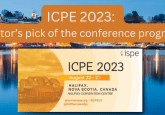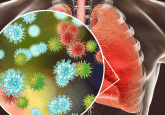Patient Centric Sampling Interest Group Meeting (2 July 2023, Glasgow, Scotland): Powering decentralized clinical trials with patient-centric sampling

The Patient Centric Sampling Interest Group (PCSIG) is hosting an in-person one-day event on Sunday 2nd July, 2023, in Glasgow, Scotland, as a satellite meeting to the 19th World Congress of Basic & Clinical Pharmacology 2023.
The event, introduced by Neil Spooner of PCSIG, will discuss patient-centric sampling (PCS) – the collection of high-quality samples for the determination of pharmacokinetic, pharmacodynamic and clinical chemistry endpoints. The technologies available to facilitate PCS offer the potential to collect high-quality samples from patients in settings such as in the home, away from centralized clinical locations, thus putting the needs of the patient at the center.
Register to hear from and interact with experts from a range of stakeholders from pharma, healthcare, suppliers, and the patient voice. The program includes speakers from Janssen, MediPaCe, UCB, Trajan Scientific & Medical, The Royal Marsden, and Gates MRI.
PCS is a new approach to blood sample collection that puts the needs of the patient first. Instead of requiring patients to travel to a clinical site to have blood drawn by a healthcare professional, PCS allows patients to collect their own samples at home using a variety of methods. PCS also has the potential to revolutionize the way that blood samples are collected in clinical trials. As PCS technologies continue to develop, it is likely that they will become increasingly widespread in clinical and medical research.
For patients, PCS has a number of potential benefits including:
- Increased convenience and flexibility: Patients can collect their samples at a time and place that is convenient for them, which can help to improve adherence to clinical trials.
- Reduced travel time and costs: Patients no longer have to travel to a clinical site to have blood drawn, which can save them time and money.
- Increased comfort: PCS methods, such as finger prick, are less invasive and painful than venipuncture, which can make the experience more comfortable for patients.
For clinical trials, PCS has several advantages including:
- Increased recruitment and retention: PCS can make clinical trials more accessible to patients who live in remote areas or who have difficulty traveling. This can help to improve recruitment and retention rates.
- Improved data quality: PCS can help to improve the quality of data collected in clinical trials by reducing the risk of contamination or errors.
- Reduced costs: PCS can help to reduce the costs of clinical trials by reducing the need for travel and laboratory fees.
More information on the program and registration can be found here.
Read more about the PCSIG on The Evidence Base here.
Want regular updates on the latest real-world evidence news straight to your inbox? Become a member on The Evidence Base® today>>>






